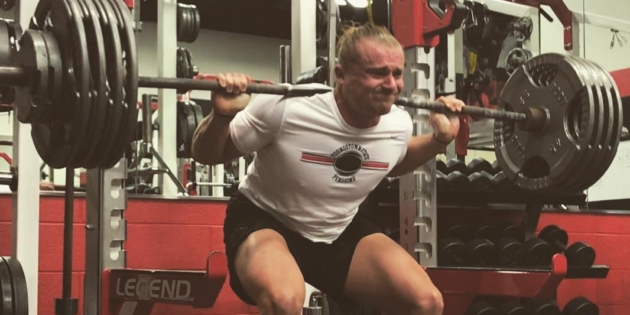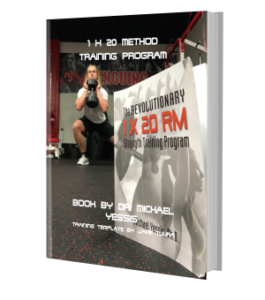- Young kids sit in class for hours then immediately sprint during recess. Yet grown athletes need a 15-minute dynamic warm-up to prepare for activity. Is this because older athletes are more “developed” and therefore take longer to get going? Or is it because kids want to play and older athletes don’t really want to train/practice? Psychology affects physiology.
- If someone says they want to build muscle/lose fat/get in shape, they are not serious. If they were serious, they would have developed the knowledge to know what to do and they would already be doing it.
- “Strength is the foundation of all physical qualities” – This statement benefits strength coaches because it makes us feel relevant. But what exactly does it mean? “Strength” is a broad term. If “strength” means “force” then you don’t need a weight room to develop “force”.
- “You need to absorb force before you can apply it” – Go tell this to the 6-year old who just jumped off a swing. Go tell Vince Carter to practice Snap Downs before he dunks a basketball. When did human beings lose the ability to absorb force? And when did eccentrics and isometrics become a requirement to jumping higher and sprinting faster?
- “Educate your athletes” Do athletes need to know about phases of muscular contraction, energy systems, and the transference of certain exercises to their sport? From what I’ve seen, many athletes want to do their lift and carry on with their day. The 0.1% who are actually curious will end up becoming strength coaches. Also, how often are we wrong as strength coaches? Why waste an athlete’s time with shaky theories?
- Perception and Action. In team sports, these two are coupled. Athletes perceive something from the environment and choose a line of action. When, in strength and conditioning, is perception trained? Running lines, working on sprint/COD technique, lifting… these lack perception and don’t train the brain. Everything changes when perception comes into play.
- “Success leaves clues” – Looking at successful people gives you subjective reference experiences. Without a “why”, or objective knowledge, this saying does more harm than good. Seems to lend to the “this is the way we’ve always done it” paradigm.
- “Eccentric overload” does not mean lowering a weight slowly then picking it up. This does nothing special compared to normal repetitions. If you want “Eccentric overload” you have to use supramaximal loads, a flywheel, or a fast push-pull tempo with a given weight.
- So much talk about “bulletproofing” from injury. If all you do is lift in a closed environment, how “bulletproof” are you when you have to react to the chaotic, high-velocity environment of sport?
- Passion: strong and barely controllable emotion. Should we really aspire to be passionate coaches and athletes when coaching and performing? How many good, logical decisions can be made in a heightened emotional state? The two oppose one another.
Thoughts 2



